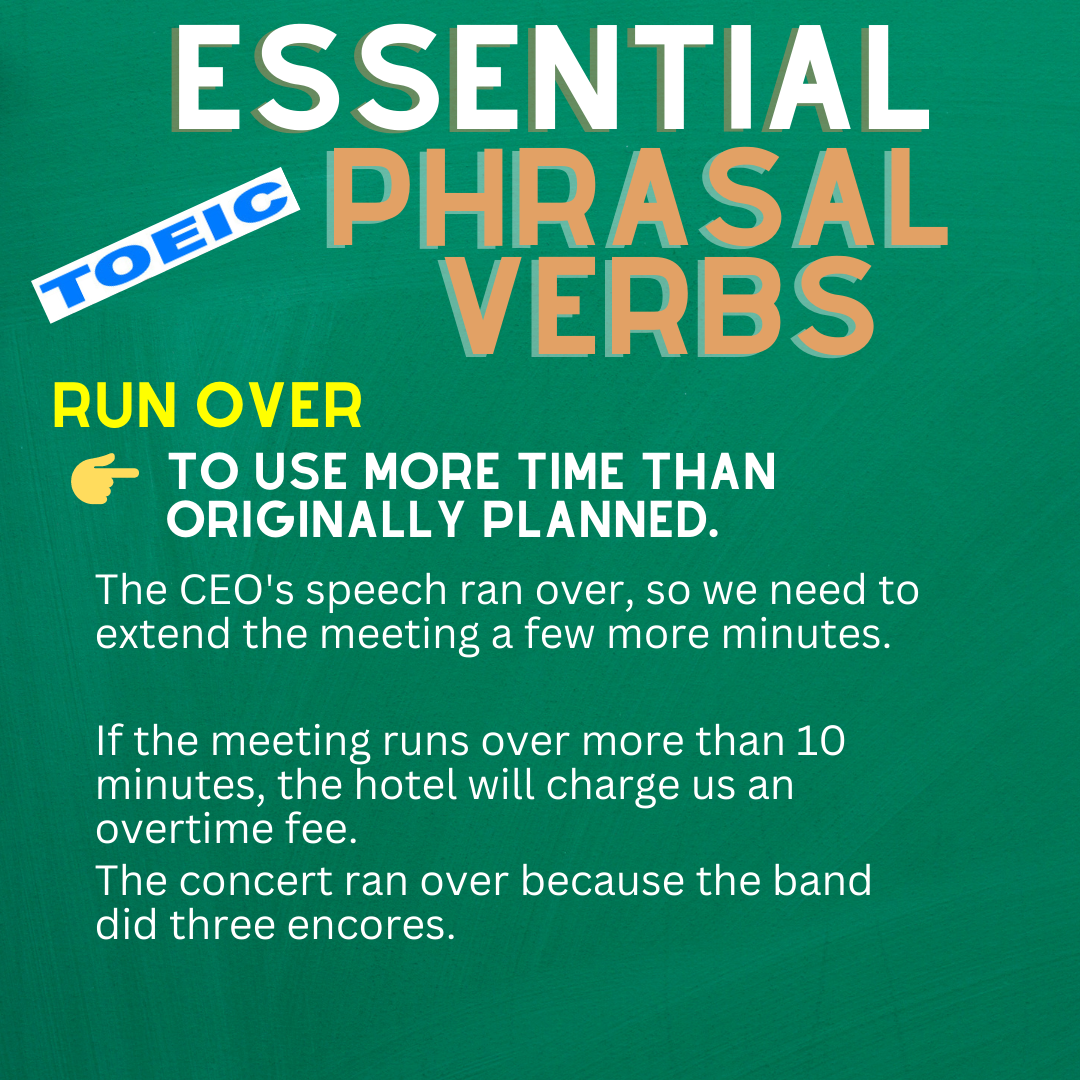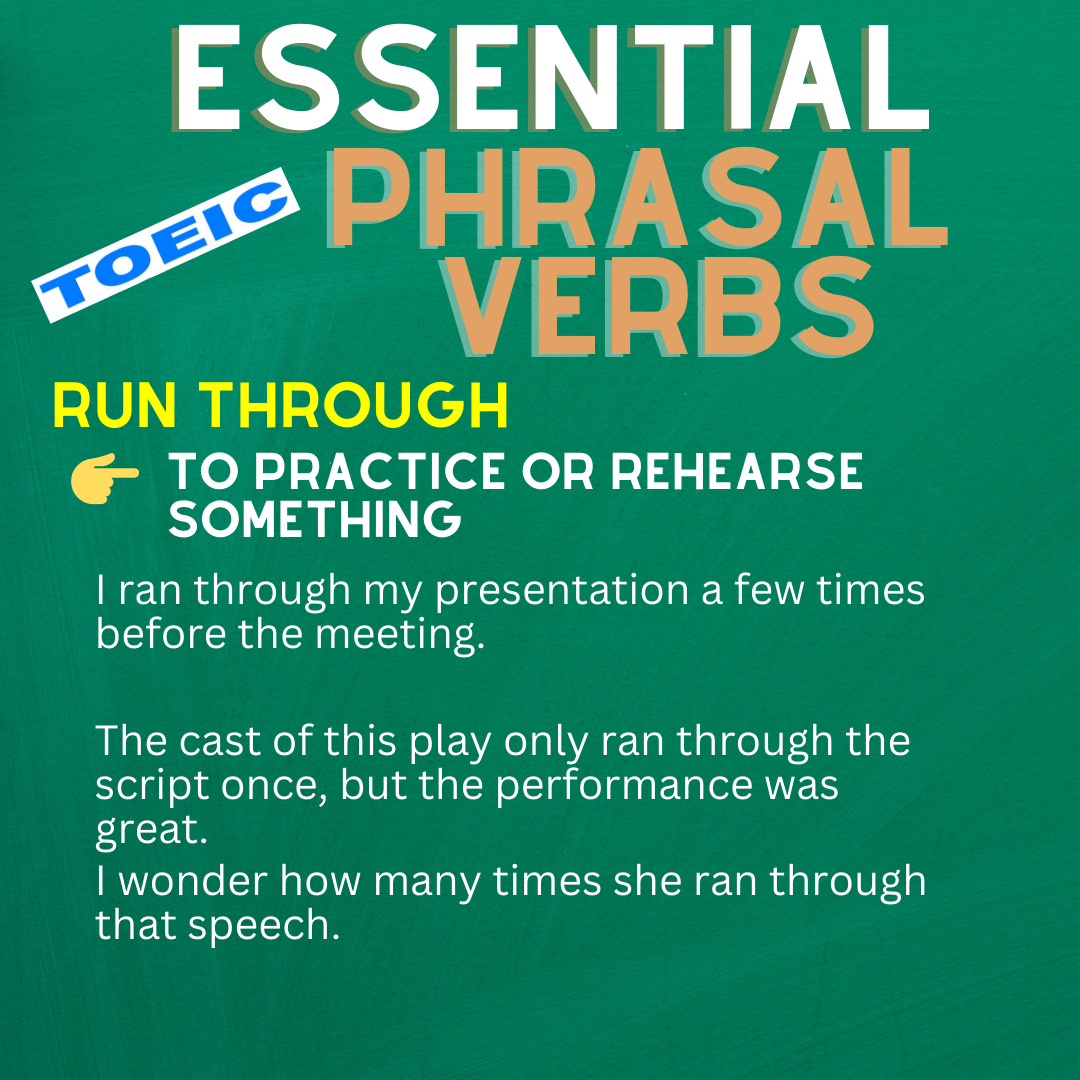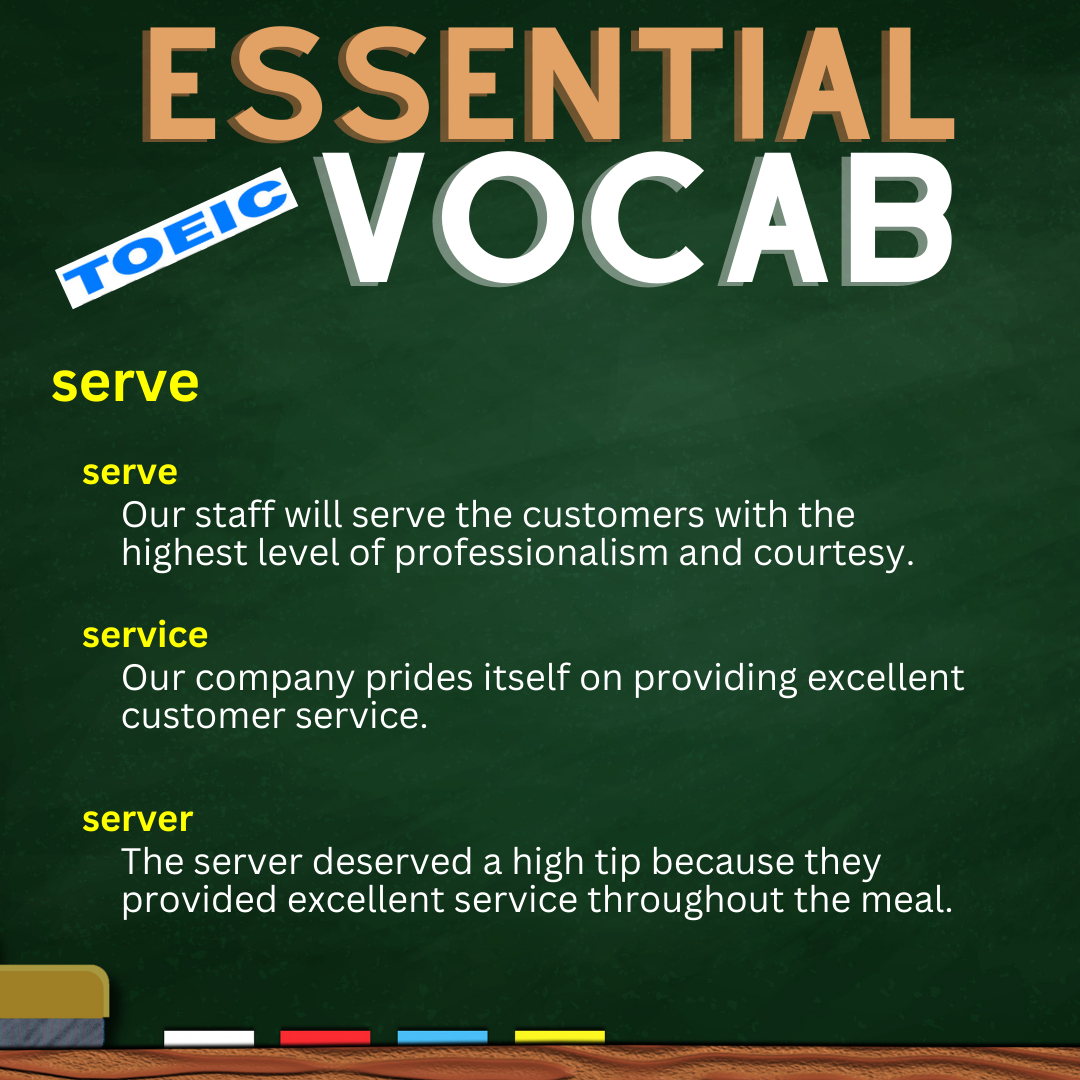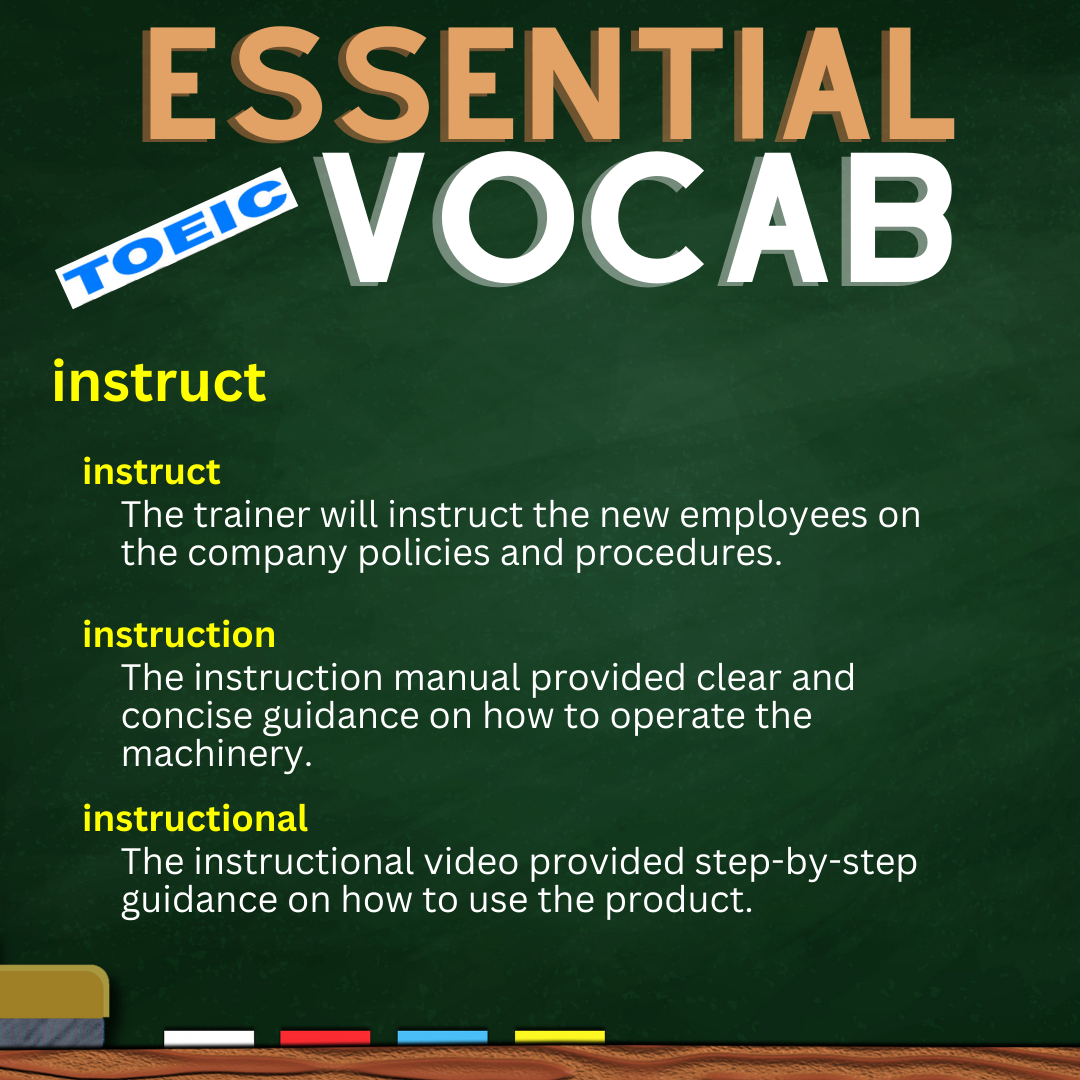Michael's TOEIC Lesson Blog
One point English lesson to help you navigate TOEIC Grammar, Phrasal Verbs, and Vocabulary
There are always questions about the phrasal verbs on the TOEIC exam:
Check out means to examine or inspect something in order to learn more about it.
- Let's go check out the new furniture in the conference room
- I want to check out the ...

Your knowledge of phrasal verbs will certainly be tested on the TOEIC® exam. Catch On is one of the phrasal verbs that often appears in Part V and Part VI.
Catch on has a few meanings, but for this lesson, catch on means to become popul...
How do we use GET in the causative?
There are a variety of English grammar patterns that are tested on the TOEIC® exam. Causative verbs, such as get, often appear in Part V and Part VI.
We use the pattern get someone to do. This has the ...
When you learn a new word, build you vocabulary with all forms of that word. When possible, try to start with the verb form - the verb will best show you the meaning of the word and the word family.
Support is a verb which means to give as...
There are always questions about the phrasal verbs on the TOEIC exam:
Pick up means go somewhere to get or retrieve someone or something
- Jimmy is going to pick up Mr. Hendrix at the train station.
- I picked up my sister at the mall this ...
How do we use the modal verb, had better?
There are a variety of English grammar patterns that are tested on the TOEIC® exam. Modal verbs, such as had better often appear in Part V and Part VI.
We use had better to give someone a strong ...
When you learn a new word, build you vocabulary with all forms of that word. When possible, try to start with the verb form - the verb will best show you the meaning of the word and the word family.
Consume is a verb. Consume means to use ...
There are always questions about the phrasal verbs on the TOEIC exam:
When you set something up you make arrangements to do that thing.
- Ms. Lane set up a meeting with the auditors.
- The travel department can set up the itinerary for you ...
How do we use the adverb of time, YET?
There are a variety of English grammar patterns that are tested on the TOEIC® exam. Yet is one of the adverbs of time that often appears in Part V and Part VI.
We use YET to say that something that ...
When you learn a new word, build you vocabulary with all forms of that word. When possible, try to start with the verb form - the verb will best show you the meaning of the word and the word family.
Agree is a verb. Agree means to have the...
There are always questions about the phrasal verbs on the TOEIC exam:
Step down means to resign or leave a position or job voluntarily.
- After serving as CEO for 10 years, Mark decided to step down and hand over the reins to his successo ...
How do we use would have?
There are a variety of English grammar patterns that are tested on the TOEIC® exam. Would have is a past modal verb and often appears in Part V and Part VI.
We use would have to show that we wanted to do somethi...
When you learn a new word, build you vocabulary with all forms of that word. When possible, try to start with the verb form - the verb will best show you the meaning of the word and the word family.
Expand is a verb
- Our company is plann ...
There are always questions about the phrasal verbs on the TOEIC exam:
Look for means to search
- The marketing department is looking for an editor. You should apply for the position.
- The company is looking for new products to sell in thi ...
How do we use SHOULD in conditional sentences?
There are a variety of English grammar patterns that are tested on the TOEIC® exam. Questions about conditionals often appear in Part V and Part VI. In very formal English, should can replace...
When you learn a new word, build you vocabulary with all forms of that word. When possible, try to start with the verb form - the verb will best show you the meaning of the word and the word family.
Decide is the verb
- We need to decide ...
There are always questions about the phrasal verbs on the TOEIC exam:
Call off means to cancel or postpone.
- The boss had to leave the office suddenly so we need to call off today’s meeting.
- The company decided to call off its plans to ...
How do we use MAKE in the CAUSATIVE?
There are a variety of English grammar patterns that are tested on the TOEIC® exam. The causative form of verbs like make often appears in Part V and Part VI. There are three patterns using make in the ...

Learning phrasal verbs like this one will help make your English sound more natural and give you an edge on English exams, like the TOEIC® Exam. There are usually one or two questions on the TOEIC® Exam dealing with phrasal verbs
What do...

Learning phrasal verbs like this one will help make your English sound more natural and give you an edge on English exams, like the TOEIC® Exam. There are usually one or two questions on the TOEIC® Exam dealing with phrasal verbs
What do...
How do we use COULD HAVE in English?
There are a variety of English grammar patterns that are tested on the TOEIC® exam. Past Modals like Could Have often appear in Part V and Part VI. The pattern here is could have followed by a past part...

When you learn a new word, build you vocabulary with all forms of that word. When possible, try to start with the verb form - the verb will best show you the meaning of the word and the word family.
Serve is a verb meaning present someth...

When you learn a new word, build you vocabulary with all forms of that word. When possible, try to start with the verb form - the verb will best show you the meaning of the word and the word family.
Instruct is a verb meaning to teach or...

Learning phrasal verbs like this one will help make your English sound more natural and give you an edge on English exams, like the TOEIC® Exam
What does the phrasal verb SET UP mean?
The phrasal verb set up means to make arrangements f...





















